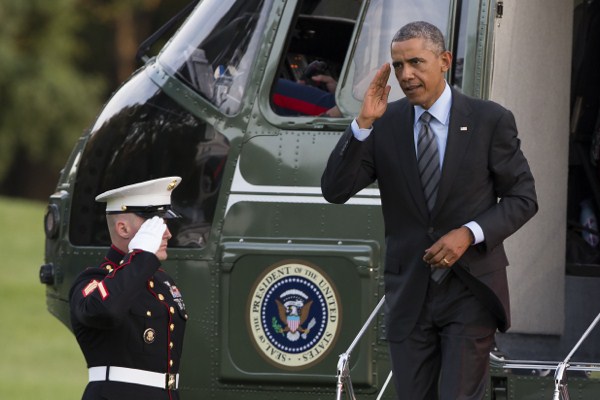Upon first taking office, Barack Obama promised that his presidency would be all about hope. He made this offer to foreigners as well as Americans. “The most powerful weapon in our arsenal is the hope of human beings,” he told the United Nations in 2009, arguing for “the confidence that conflicts can end and a new day can begin.”
Five years on, Obama is fighting conflicts that stubbornly refuse to end, but he still has a potent diplomatic weapon. It is not hope, but fear.
This might seem counterintuitive, since Obama is not perceived to be an especially frightening president. Previous American leaders have aimed to instill fear in their opponents. Richard Nixon toyed with the “madman theory” of faking preparations for a nuclear strike on the Soviet Union to gain leverage over Moscow. George W. Bush believed that the invasion of Iraq would bring other foes, such as Iran and North Korea, to heel.

